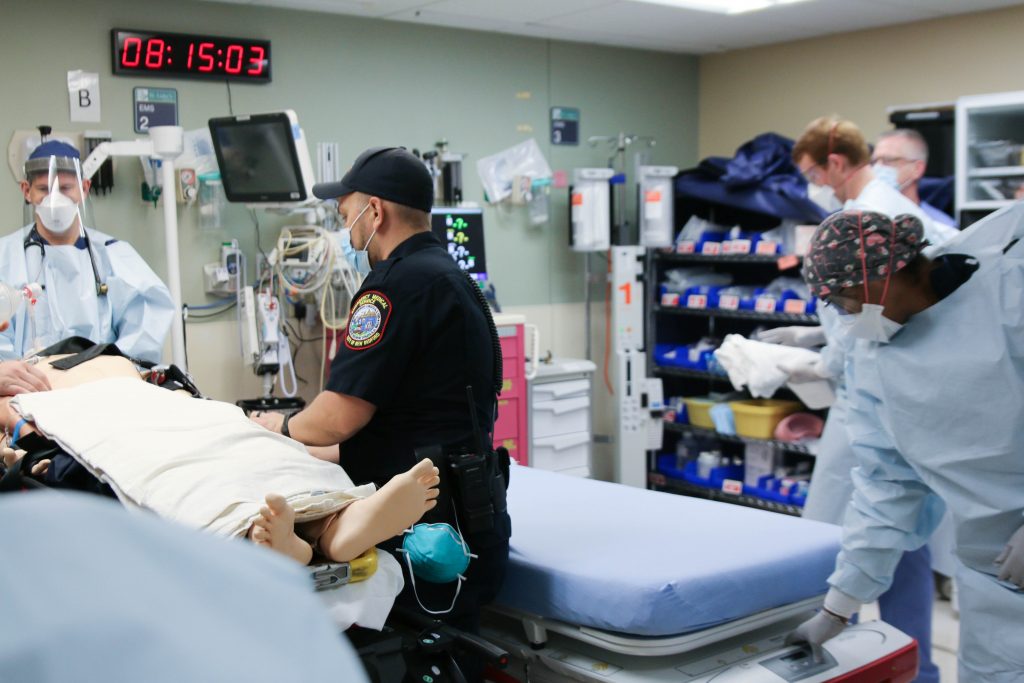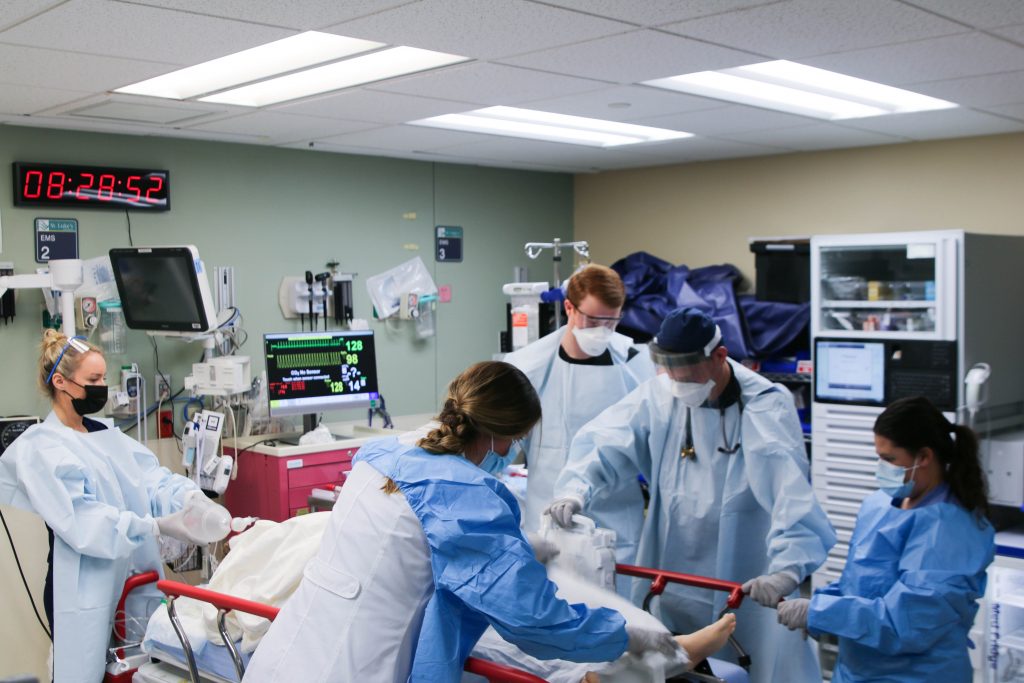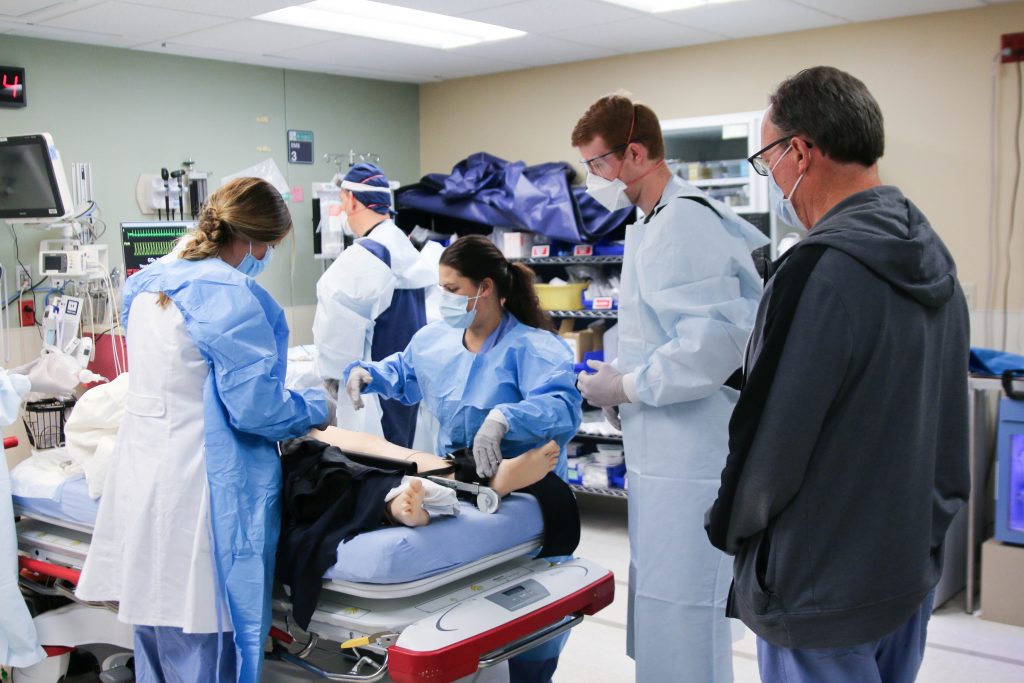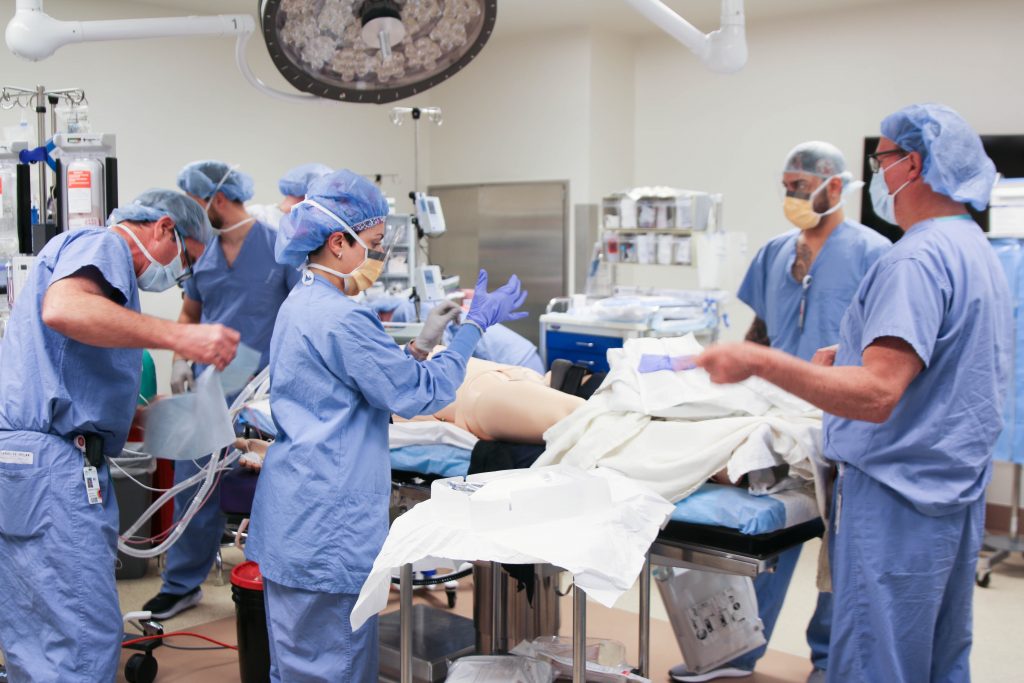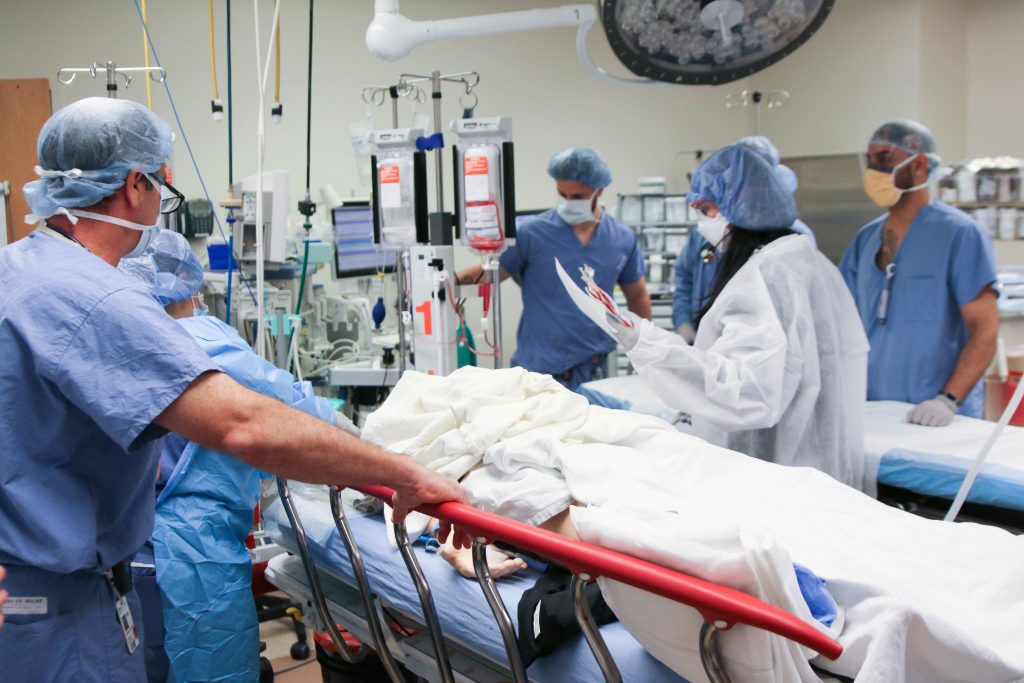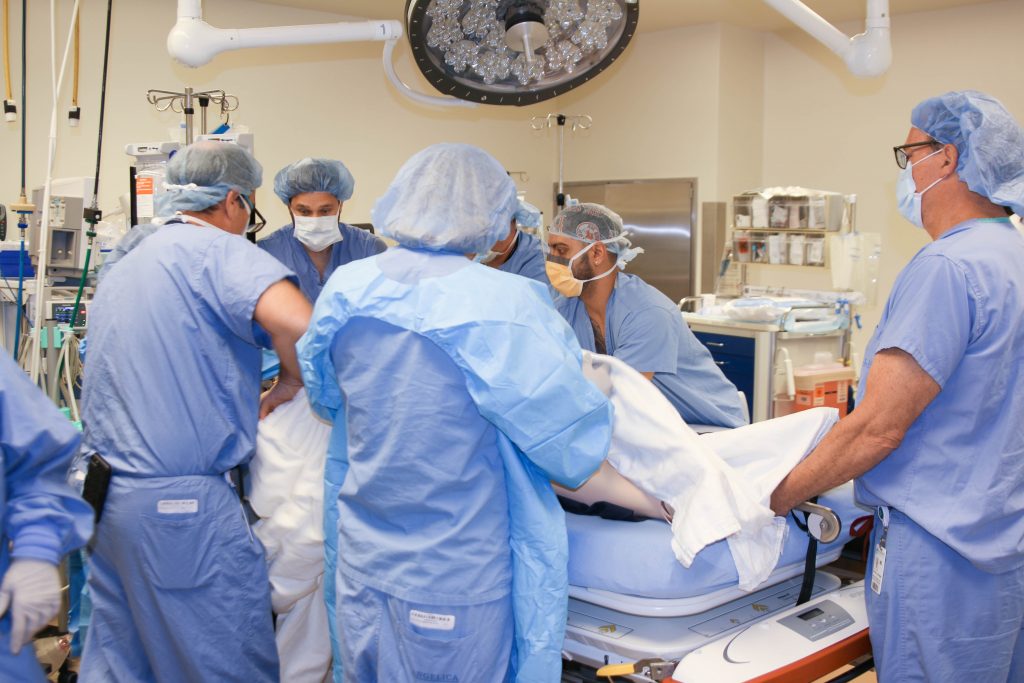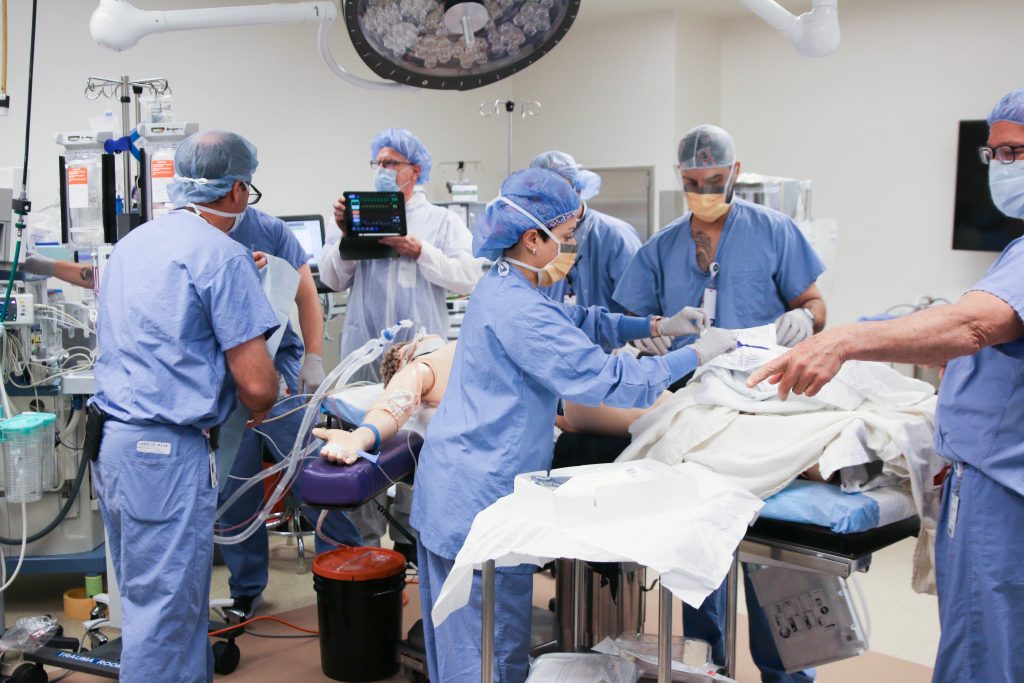Southcoast Health’s Level II Adult Trauma Center Serves the Community as the Most Advanced in the Region
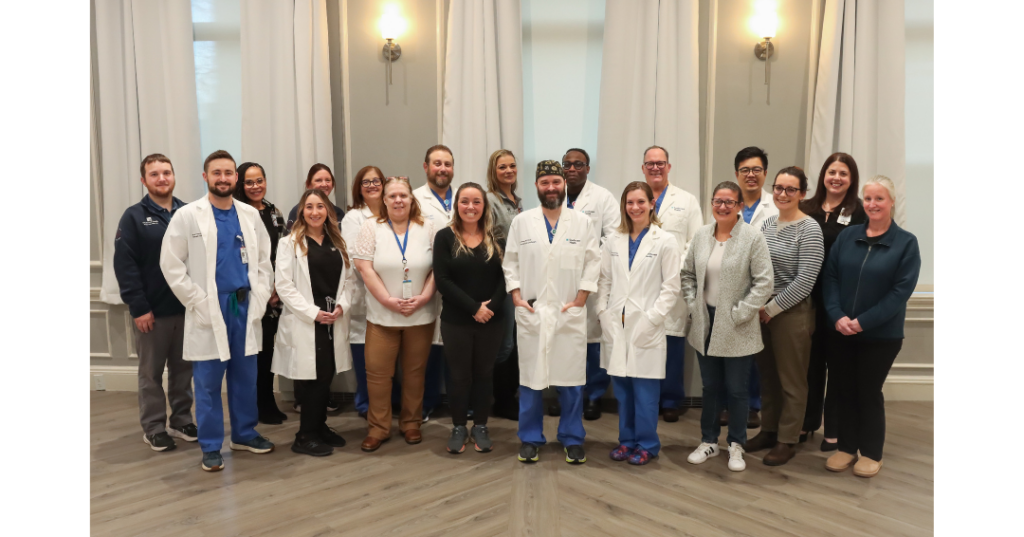
The Southcoast Health Trauma Center at St. Luke’s Hospital maintained its position as the most advanced trauma center in southeastern Massachusetts by earning reverification from the American College of Surgeons (ACS) and redesignation from the Massachusetts Department of Public Health as a Level II Adult Trauma Center in a 2024 comprehensive review process.
Read the full story here.
Southcoast Health Trauma & Acute Care Surgery
At our state-of-the-art Southcoast Health Level II Trauma Center, we provide swift, comprehensive care for patients experiencing severe and life-threatening injuries. Our team of highly skilled trauma and acute critical care physicians at St. Luke’s Hospital are dedicated to deliver advanced and compassionate patient-centered care 24/7. Equipped with cutting-edge technology and a fully integrated approach to trauma care, we ensure that each patient receives the best possible outcome through prompt and precise intervention, seamless coordination, and continuous support throughout their recovery journey.
Southcoast Health Trauma Center Services & Treatments
The Southcoast Health Trauma Center providers 24/7 around the clock continuous care for patients in need of immediate care due to severe injuries. We offer comprehensive services and resources that far exceed those of a standard emergency room. Our trauma team provides you with:
- Access to in house experts including advanced surgical services
- Advanced diagnostics
- Community education and injury prevention outreach
- Critical care units and trauma step-down care
- Multidisciplinary teams
- Rehabilitation services
- Recovery care through Trauma Survivors Network
- Severe injury treatments
Additionally, an important aspect of a Trauma Center’s responsibility is creating and maintaining a Trauma Registry. The data from each hospital is abstracted and put into the Trauma Registry by a Trauma Registrar. It’s then submitted to the National Trauma Data Bank (NTDB) and Trauma Quality Improvement Program (TQIP), which is then used for research, best practice guidelines, and benchmarking.
“The level II trauma designation means that we built a program or system that meets pretty high nationally accepted standards for critically injured patients,” says Dr. Brandon Fumanti, a Trauma Surgeon at St. Luke’s Hospital.
Trauma Center Care in the South Coast Region
According to the American Association for the Surgery of Trauma, traumatic injuries are the leading cause of death for individuals up to 45 years old. In an emergency, every second counts and victims of traumatic injuries often find themselves in a race against time. The ability to receive care quickly and close to home could be lifesaving.
Establishing a level II trauma center in the community fills a critical need. With faster access to evaluation and care, the trauma center is safer for patients and the community. It is also beneficial for their loved ones and family members as it is easier to get to. After traumatic accidents, many patients require surgery, hospital stays or follow-up care.
Expert Team
Here at St. Luke’s Hospital, we are fortunate to have a highly skilled team available 24/7 in the trauma center. Below are a few profiles of the St. Luke’s Trauma Team. You may click on their photos to learn more about these providers.






Thank you to all trauma providers and EMS first responders who help keep our community safe.
Community Collaboration
The Southcoast Health Trauma Center offers free Stop the Bleed classes to community groups of all ages. The classes teach participants how to control life threatening bleeding in an emergency situation. If you are interested in hosting a Stop the Bleed course for your local community group, please contact Jacquelyn Miller at MillerJA@southcoast.org.
Educational Trauma Simulations Prepare the Team
Research shows that trauma patients need specialized medical attention within an hour for the best outcome. Although no one can predict when an emergency may occur, the Southcoast Health Trauma Team has the expertise and compassionate care needed to quickly comes together in an organized team approach during a trauma emergency. Working together, this team always puts the patients’ needs first and are continually improving on their skills and response time. To ensure that they are exercising their skills often, this team participates in trauma simulations so that they know exactly how to best care for a patient in a real situation.
Carefully going through multiple simulations in an educational light is just one way they show their commitment to providing excellent care close to home.
